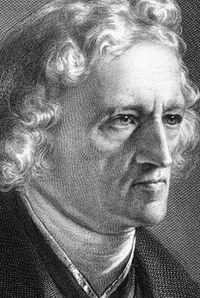Jacob Ludwig Karl Grimm, a renowned German philologist, jurist, and mythologist, left an indelible mark on the world of linguistics, literature, and folklore. His groundbreaking discovery of Grimm's law, a fundamental principle in linguistics, revolutionized the field and cemented his place as a pioneer in the study of language.
As a co-author with his brother Wilhelm, Grimm worked tirelessly on the monumental Deutsches Wörterbuch, a comprehensive dictionary of the German language that remains an invaluable resource to this day. His work on this project not only showcased his vast knowledge of the German language but also demonstrated his dedication to preserving the cultural heritage of his native country.
In addition to his work on the dictionary, Grimm also authored Deutsche Mythologie, a seminal work on Germanic mythology that sheds light on the rich cultural traditions of the region. His writings on this topic not only contributed to a deeper understanding of Germanic culture but also helped to establish him as a leading authority in the field of mythological studies.
However, Grimm is perhaps most famous for his work as one of the Brothers Grimm, a duo of German academics who collected and published a series of folktales known as Grimm's Fairy Tales. These beloved stories, which include classics such as Cinderella, Snow White, and Hansel and Gretel, have been translated into numerous languages and continue to captivate audiences around the world.
Throughout his illustrious career, Grimm was driven by a passion for language, culture, and folklore. His tireless efforts to document and preserve the cultural heritage of Germany have had a lasting impact on the world of academia and beyond. As a testament to his enduring legacy, Grimm's work continues to inspire and educate scholars and the general public alike.













































